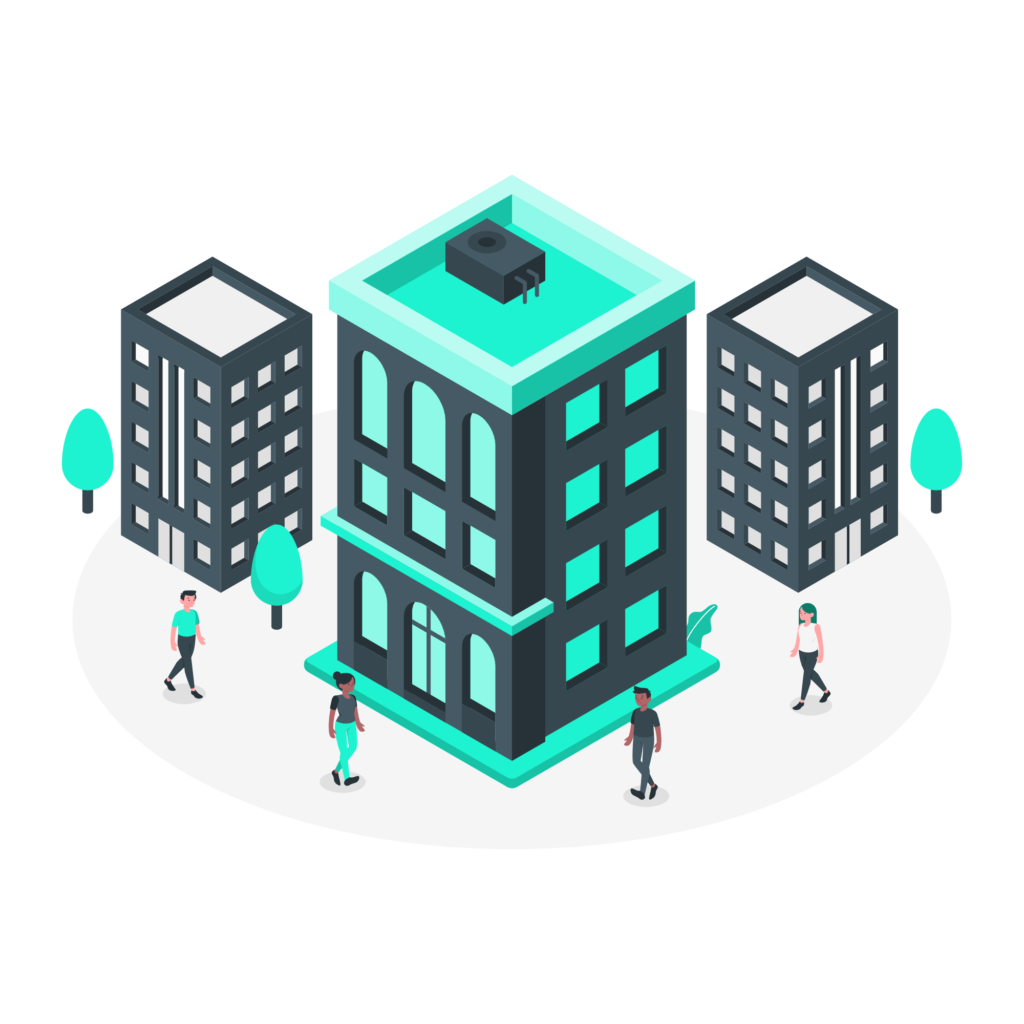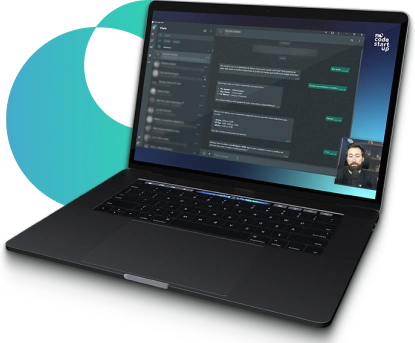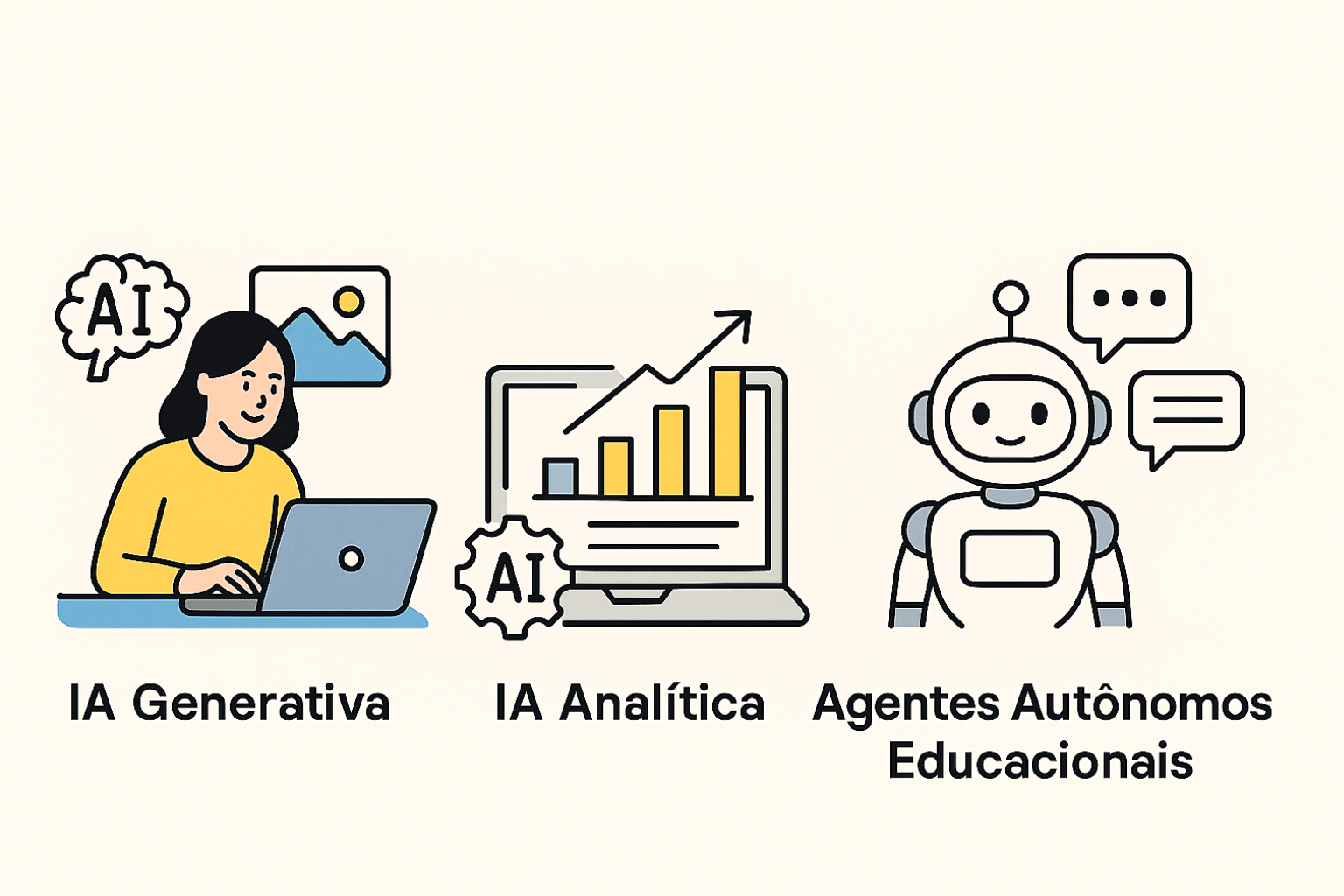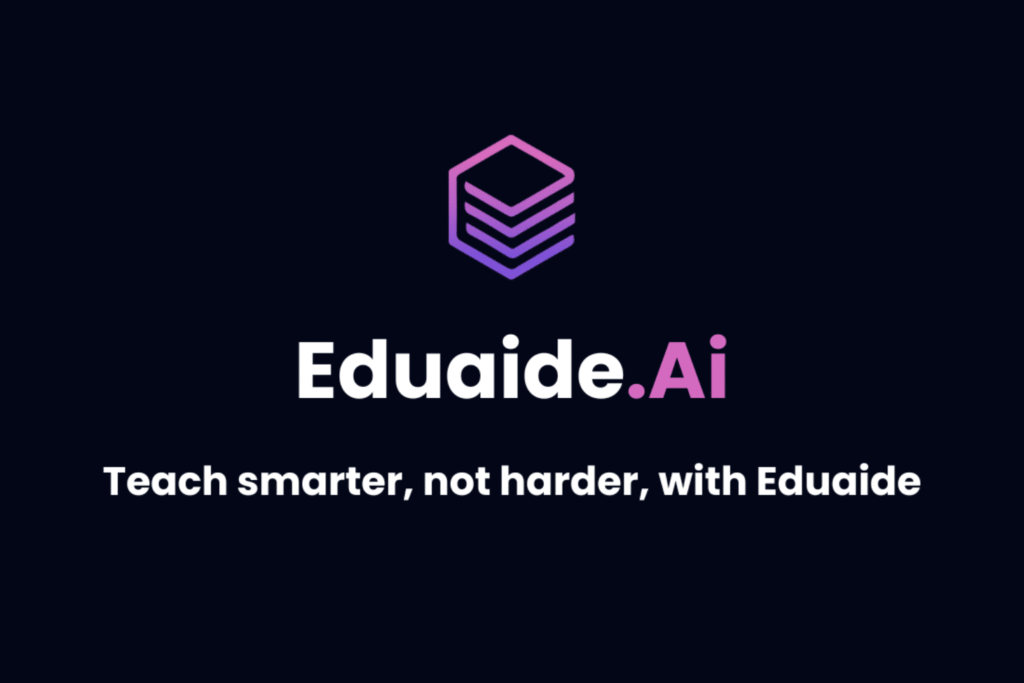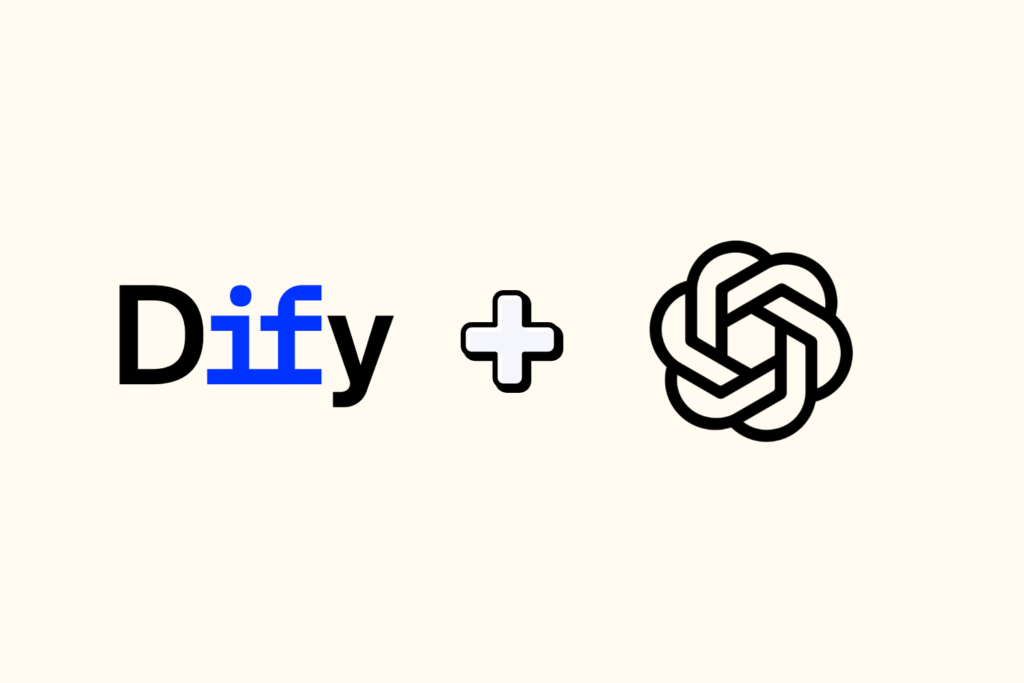Have you heard of startups, but still have doubts about what this term really means? And did you know that the no-code movement has helped thousands of founders get their ideas off the ground, even without knowing how to code?
In this article, we will explain:
- What defines a startup
- What are the main types and characteristics of this model?
- How No-Code Programming (no-code) is Transforming This Market
Table of Contents
What is a startup?
The term “startup” means “emerging company”, in a literal translation, and became popular during the internet bubble, between 1996 and 2001.
Initially, it was associated with the idea of young people working in garages. The emergence of Apple and Microsoft exemplify this imagery well.
However, the concept has evolved. Today, it represents innovative companies with low costs and ability to grow quickly.
The startups have the mission of creating products or services that have a significant impact on the market. Among the most famous in the world are:
- Uber;
- Netflix;
- Airbnb;
- Tesla;
- SpaceX;
- Stripe;
- Zoom.
These companies represent dynamism and innovation associated with the term “startup”. The concept went beyond the initial idea of young people working in garages and began to encompass revolutionary businesses in various sectors.
Entrepreneurship and the ability to adapt to new market demands are essential characteristics of this business model.

What are the characteristics of a startup?
Have you already understood the concept of a startup, but are still unsure about the characteristics of the business model? Rest assured! Let's delve deeper into each of them below. Continue reading!
Innovative in solutions
When we talk about a scalable business, the first characteristic that comes to mind is innovation. Indeed, this type of company is always looking for new ways to solve problems and meet market demands.
To have agility in creating innovative solutions is essential.
Uber, for example, innovated by transforming the way people get around, creating a transportation service connected to smartphones. The innovation was so impactful that it created a new form of urban mobility.
It is a scalable business
THE Scalability is a core feature of startups, which seek significant growth, with minimal resources. The objective is to efficiently reach a large number of users.
Dropbox is a platform that started as a small startup, offering cloud storage services. The scalability of the business has allowed the tool to become essential for many users around the world.
Repeatable and with quality standards
To be able to scale the business it is necessary have repeatable solutions. In practice, this means delivering consistent products or services, maintaining a high standard of quality even on a large scale.
Netflix, for example, has established a repeatable business model, offering high-quality streaming content on a global scale. Even though it is available in most countries, the platform's standard remains consistent.
Employ dynamic teams
Having dynamic teams is another fundamental aspect of the business model, which depends on multidisciplinary professionals, capable of quickly adapting to changes and uncertainties in the business model.
Having agility and flexibility are mandatory requirements.
O Airbnb is a startup that quickly adapted to the changes observed in the tourism and hospitality market, expanding its offering to meet users' needs.
The ability to adapt quickly is made possible by dynamic and agile teams.
Subject to risks
If you are thinking about starting a startup, you need to know that there is a risk that it will not work out. This is because the process of transforming innovative ideas into successful products or services involves uncertainty and the possibility of failure.
Therefore, effective and detailed planning is essential.
What are the types of startups?
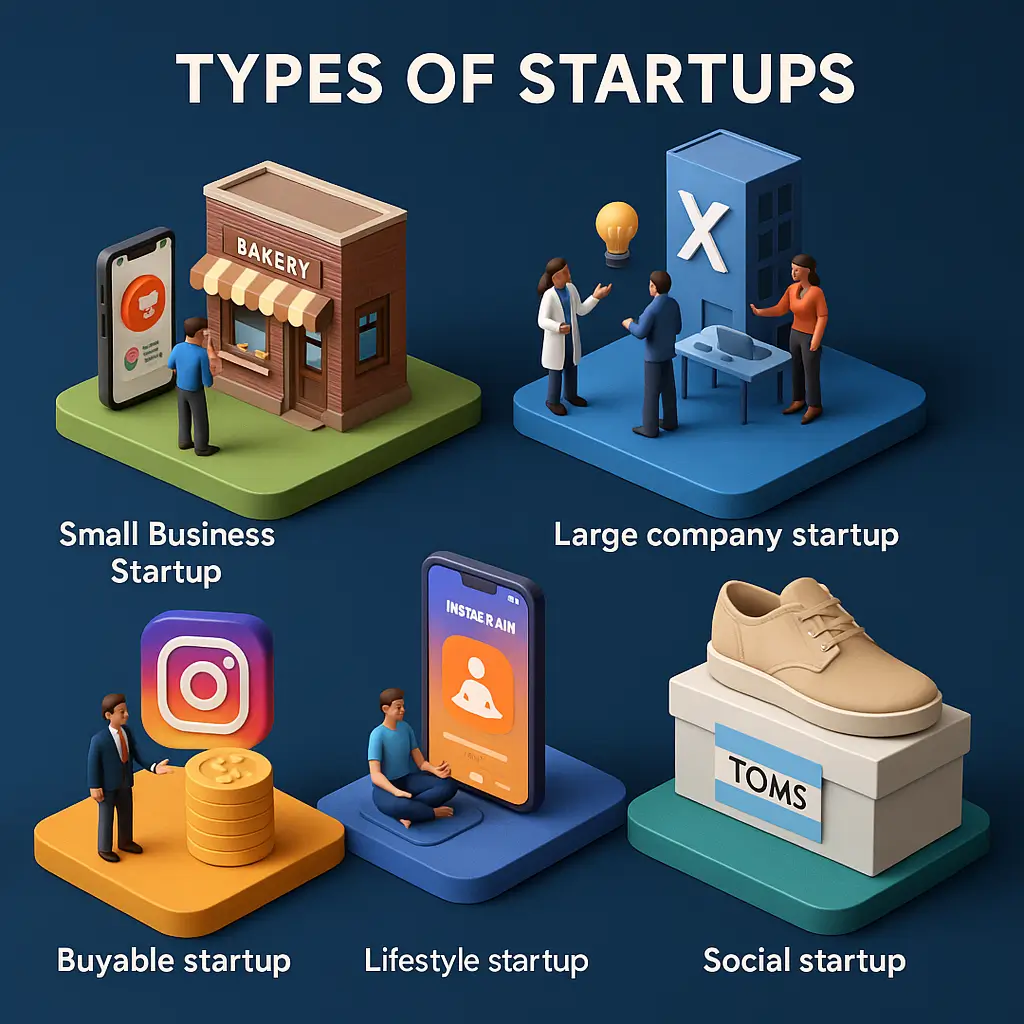
Now that you understand exactly the concept and main characteristics of the startups, let's look at the most common types that exist.
Small business startup
Small business startups they are small businesses, often aimed at a local audience. They are generally founded by beginning entrepreneurs or people looking for more specific businesses.
Shall we look at a practical example? Imagine a small bakery on the corner of your house…
It could be a simple local store, but they use no-code tools to create a delivery app, making it easier for customers to access products. Innovation makes it a small business startup.
Large company startup
On the other hand, the large company startups arise when Large, established companies seek more dynamic and innovative business models to remain competitive in the market.
A good example of this type of startup is Google X, a research laboratory of Alphabet, (Google's parent company).
Despite being part of a large technology company, the Google X operates independently, focusing on innovative and ambitious projects.
Buyable startup
Already the buyable startups are those companies created with the aim of being sold. They generally arise from a promising idea or attractive prototype for investors.
Instagram is an example. Initially launched as an independent photo-sharing platform, it quickly caught the attention of Facebook. Until, in 2012, it was purchased for US$ 1 billion.
Startup lifestyle
These are companies whose objective is generate knowledge about a given subject, with a specific purpose. Educational startups fall into the category.
O Headspace, an app that offers guided meditation services and mindfulness, it is an example.
social startup
To conclude, the social startups they are focused on social actions and seek to transform local reality or contribute to positive changes in the world. In this way, they have a clear social mission in their approach.
TOMS, a shoe store, is a social startup. Although it has grown, the company began as a startup with a clear social mission: for every pair of shoes sold, another would be donated to a child in need.
How does codeless programming drive startups?
THE popularization of no-code platforms has driven many startups. Through them, it is possible for programmers and people without advanced programming knowledge to easily create products and services, such as:
- Software;
- Applications;
- Games;
- Websites.
no-code development is done through visual interfaces and configurations, minimizing or eliminating the need to write extensive code snippets.
In practice, the low-code platforms and no-code allow the development of digital products with faster and less involvement of IT teams.
Some of the benefits of employing the no-code in startups are:
- Agility in development;
- Reduced dependence on IT;
- Reduced development costs;
- Fast iterations and greater flexibility;
- Greater business autonomy;
- Efficient prototyping and validation.
Start programming now with no-code

Interested in learning no-code to boost your startup? You can start now with No-code Start-up!
As FlutterFlow course, you learn to create iOS apps and Android without the need for code.
If your interest is to develop softwares and web applications, do the bubble course. No prior knowledge is required and classes are also free.
